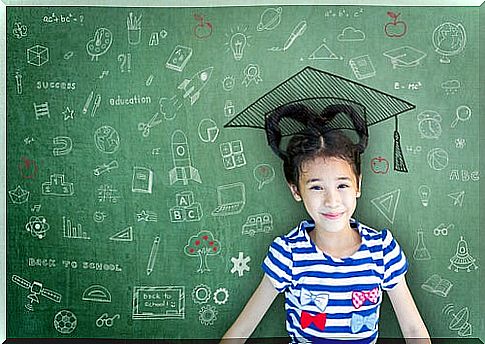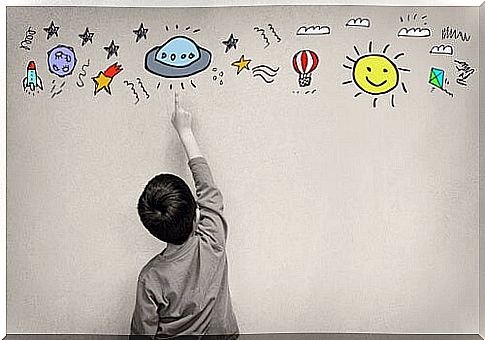Do You Know How Self-concept Influences Academic Performance?

Today we have all heard about self-esteem and we are more or less clear what this concept means. However, it should be remembered that it corresponds to the evaluative perception of ourselves, that is, to how we value ourselves. Now, do we know what self-concept is? And more importantly, what is the relationship between this and academic performance?
Although self-concept and self-esteem are similar concepts, we should not confuse them. This is the first maxim that we must respect to understand how this psychological component influences the academic performance of a student. In fact, this area of study is essential to improve our educational system and the way we teach the smallest of our society.
Thus, we can say that self-concept can be defined as the set of perceptions, ideas and thoughts that a specific individual possesses of himself. In other words, it would be a fundamental part of the “I” or the idea that a person has of who he is.
So what is the difference between self-concept and self-esteem? While the self-concept only describes the image we have of ourselves, without going to value it; Self-esteem consists precisely in the subjective assessment that we make of our personal characteristics.
Another way of understanding the self-concept is as the construct based on the relationships that a subject maintains with society and its environment. In this way, the way in which we see ourselves will greatly influence how we act in the different areas of our life, including education.
In the opinion of the child and youth psychologist Elisabet Rodríguez Camón, there are two works that have changed the study of academic performance. One refers to the theory of multiple intelligences, by Howard Gardner, and the other is the book Emotional intelligence , by Daniel Goleman, which talks about the importance of self-concept. In this article we will see how these ideas apply to education.

What is academic performance
A fairly accepted definition of academic performance understands it as the capacity for learning and response presented by the student. However, to study this phenomenon, it is necessary to understand the different factors that affect it.
The elements on which academic performance depends are varied. Among them the aptitudes of the student himself and also his motivation stand out. But there are other factors that we should not ignore. For example, the capacity and quality of the teacher, the educational program in which the student is immersed, the school, their family and social environment …
However, one of the factors that most influences a person’s ability to learn (and one of the least studied) is self-concept.
Relationship between self-concept and academic performance
Various investigations show that there are strong relationships between self-concept and academic performance. Now, how does this first act on the second? According to the latest experiments, some factors should be highlighted:
- The evaluations made by close and significant people to the student greatly influence how he perceives himself in his student role.
- The self-concept of a student determines academic performance, since, at a qualitative and quantitative level, it will affect the perception of it in the effort that needs to be invested to learn something new, the difficulty of the tasks they face …
- Self-concept and academic performance maintain a two-way relationship and influence each other. If either of the two components is modified, the whole system changes until a new equilibrium is reached.

How to develop a good self-concept in the student
In light of these findings, it seems clear that the development of a good self-concept is vital for the student to achieve optimal academic performance. In fact, it will be vital in various facets of its growth and maturation. Therefore, it is important to take into account the following:
- A feeling of family belonging is basic. The student must observe and find understanding, interest, affection and consideration, well-being, etc. at their core of relationships.
- It is also important that the child feel unique. You must feel like someone special and unrepeatable, but you must know specifically what differentiates you from others; always staying humble and focused on what needs to be improved.
- The student must believe himself capable of achieving the proposed and established goals. In addition, you will have to know what factors intervene in such achievement, which will lead you to learn for future experiences. To do this, you must master your self-control, which will allow you to react better in the face of adversity.
- A framework of safe, stable and consistent behavior must be established in the child’s life. This is where the acquisition of positive role models comes into play to encourage and nurture those aspects that are most important to your success. This will also serve to modify unwanted behaviors.
We hope that this article has convinced you that promoting a good self-concept in children is recommended for their academic performance. In this work, we are all involved, from the student himself to his family, educators and the rest of the individuals in society.









